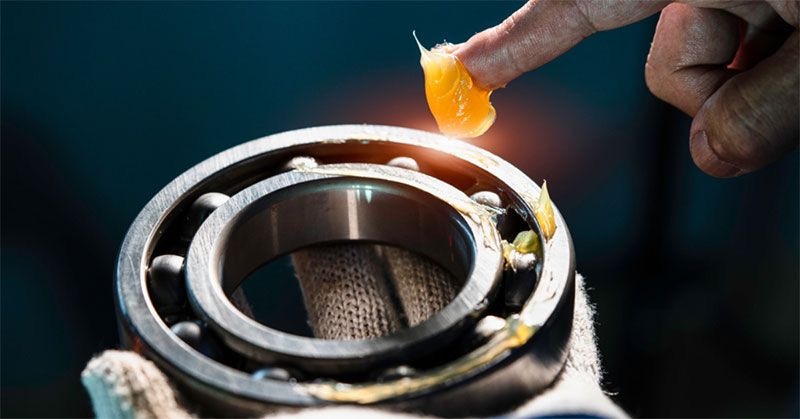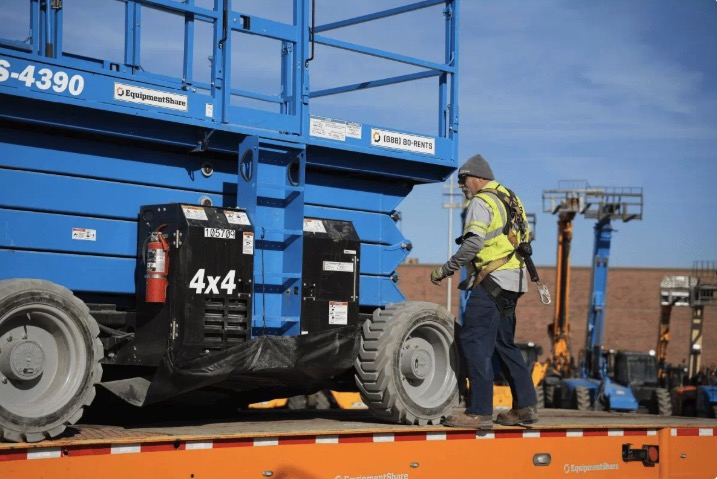
— November 18, 2025

As behemoths of productivity, diesel-powered heavy equipment, like the machines found on construction sites, tackle the most demanding tasks with remarkable strength. At the heart of these capable machines is a critical engine component that ensures optimal performance and efficiency–the fuel injector.
Fuel injectors play a crucial role in the combustion process of diesel engines by precisely delivering atomized fuel into the engine cylinders at the right time. When a fuel injector in a diesel engine malfunctions, it can set off a chain reaction of adverse effects that can significantly impact the overall performance and reliability of the machine.
A faulty fuel injector can disrupt the precise fuel-to-air ratio required for efficient combustion, leading to incomplete fuel combustion, decreased power output, reduced fuel efficiency and compromised engine performance. For construction fleets, the problems associated with a faulty fuel injector can spell unnecessary downtime and repair expenses, as well as project delays.
In this article, we’ll delve into the symptoms, causes and effects of a bad fuel injector in heavy equipment, shedding light on the crucial aspects of maintaining these vital components.
When a fuel injector malfunctions in your machine’s engine, it can set off a chain reaction of adverse effects which can result in unnecessary repair costs.
Therefore, it’s important to know the signs of a bad fuel injector so that you can address the problem before it causes damage to other parts of the engine.
Here are some of the most common symptoms of a bad fuel injector:
One of the most common symptoms of a faulty fuel injector is engine misfiring. Engine misfiring occurs when one or more engine cylinders fail to ignite fuel properly, leading to uneven power delivery and noticeable stumbling or jerking in the engine’s operation.
Usually, an engine misfire will feel like sluggishness in the engine. Your machine may hesitate or feel rough when you attempt to accelerate.
A strong smell of diesel fuel can indicate a fuel leak or improper combustion within the engine. It often results from a problem with the fuel injector, such as a leak at the injector or inefficient fuel atomization.
If you notice a strong diesel odor around your machine, particularly near the engine compartment, your machine’s engine may have a faulty injector.
Sometimes, one of the first signs of a bad fuel injector is reduced fuel efficiency. A bad fuel injector can result in an imbalance in the fuel-air ratio in the engine’s cylinder(s), inefficient combustion or improper fuel atomization.
If your machine suddenly requires more frequent refueling, it’s possible that one of its engine’s fuel injectors is malfunctioning.
One potential effect of a faulty fuel injector is rough idling. Rough idling refers to an engine running unevenly or erratically while at idle speed, sometimes accompanied by vibrations, fluctuations in RPM or an unstable engine sound.
Dirty emissions and/or excessive exhaust smoke typically indicates incomplete fuel combustion and poor emissions control, both potential effects of a faulty fuel injector.
If you notice dark-colored smoke coming from your machine during operation, it’s possible there is a problem with one or more of your machine’s fuel injectors.
Loss of engine power refers to a significant decrease in the machine’s performance and output capabilities. It indicates a lack of sufficient power generation within the engine, often caused by fuel delivery issues (such as a faulty injector).
A machine experiencing loss of engine power may struggle to perform tasks that require high torque, such as pushing heavy loads.
While there are many conditions which may lead to a faulty fuel injector, some are more common than others. These are the most typical causes of a bad fuel injector:
Like other engine components, fuel injectors must be properly maintained and sometimes replaced.
Fuel injectors can be repaired in some cases, depending on the specific issue and its severity. However, it’s important to note that not all injector problems can be repaired, and sometimes replacement is the best option.
Here are some scenarios where a fuel injector can potentially be repaired:
While it’s possible to clean fuel injectors, it’s worth noting that cleaning or repairs should be performed by a professional. Professionals or authorized service centers have the appropriate equipment and expertise required to clean and assess the specific condition of the injectors.
Sometimes, individual components of a diesel fuel injector can be replaced. Injectors are typically designed with a modular design, meaning specific injector components can be replaced without replacing the entire injector assembly.
Some common injector components that can typically be replaced include:
Heavy equipment operators should inspect their machine’s fuel injection system according to the intervals contained in its service manual. As a rule of thumb, the engine should be inspected and maintained every 500 to 1,000 operating hours, or as specified by the manufacturer.
Fuel injectors in heavy equipment play a critical role in ensuring optimal engine performance and efficiency. Understanding the symptoms, causes and effects of bad fuel injectors is essential for equipment operators and fleet managers.
By prioritizing fuel injector maintenance, you can maximize the lifespan of your machine, minimize downtime and ensure reliable operation on your construction projects. The MechLink Shop carries OEM and aftermarket parts for your entire fleet. Stay up to date on maintenance and get the components your equipment needs to operate efficiently. Can’t find the part you’re looking for? Contact one of our parts experts and get personalized assistance.

Skid steer overheating: causes and effects
December 30, 2025

Common transmission problems in heavy equipment and how to navigate them
December 30, 2025

What is a grease fitting? the functions and maintenance of zerks in heavy equipment
December 29, 2025

Slab or rough terrain scissor lift? choosing one based on maintenance & more
December 29, 2025